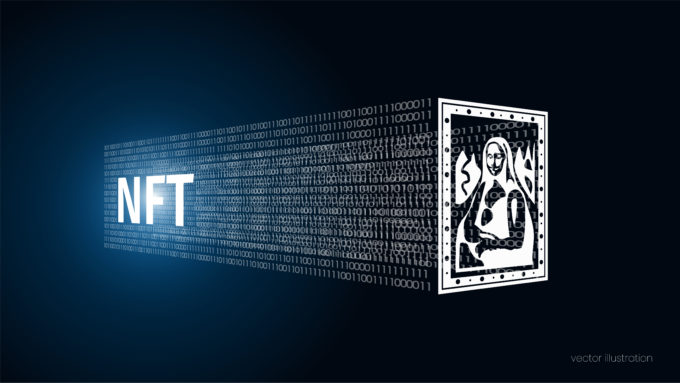
How to manage power dynamics in high-stakes negotiations
Former FBI agent Joe Navarro explains how to leverage non-verbal cues, manage power dynamics, and build trust to overcome deadlocks in negotiations....

by Arturo Bris Published July 25, 2022 in Finance • 6 min read
It’s winter in the crypto sector. Cryptocurrency prices are sharply down from previous awe-inspiring peaks. But champions of blockchain – the technology underlying cryptocurrencies – remain largely optimistic. Why? Because cryptocurrencies are just one possible application of blockchain technology, which, they argue, has a vast range of use cases and immense disruptive potential.
Regardless of the current price of Bitcoin, digital decision-makers can benefit from understanding how blockchain works and why it matters. Retail investors are enduring a deeply painful year, but there are four major reasons why blockchain technology is likely to continue to flourish and remain a source of value for digital leaders.
As with the emergence and widespread adoption of the internet during the post-millennium dotcom boom, blockchain technology is giving rise to a new era of innovation. Cryptocurrency may be the best-known (and most hyped) blockchain-based innovation, but the technology can help companies create and deliver value through various other channels. As an indication of the possibilities, while retail investors also suffered during the dotcom crash, the underlying technologies being adopted during that era have gone from strength to strength.
Blockchain technology is driving major innovation in the finance sector, for example, with decentralized finance (DeFi) applications and projects proliferating. A cryptocurrency is simply a decentralized payment system powered by blockchain technology, which also supports applications including digital wallets, decentralized borrowing and lending, decentralized exchanges, alongside more traditional finance operations.
Blockchain is also driving innovation in many other sectors, ranging from healthcare to shipping and insurance to music. Blockchain technology supports large networks that are both decentralized and secure, with the ability to exchange currency or data efficiently. The versatility of blockchain technology means that every business leader can find a use case that allows them to envisage how blockchain could be used to innovate meaningfully in their organization.
Governments, too, are using blockchain technology to innovate. Since 2018, the United Nations has described blockchain technology as integral to “a unique moment in history:”
“Our society … is in transition from an industrial economy to one defined by a new set of technologies, ranging from digitalization to nanotechnology. Among the latest waves of digitalization is blockchain – a technology that many say promises to redefine trust, transparency and inclusion across the world.”
Innovation and experimentation with blockchain are being pursued by governments across the world, including in Switzerland, India, the US, Sweden, Estonia, Georgia, and ElSalvador, to name just a few.
Many legacy enterprises play the role of intermediary, because, without blockchain technology, a trusted third party is required to complete most transactions. Blockchain has serious potential to disrupt legacy institutions by eliminating the need for intermediaries, enabling individuals to interact directly and securely.
There is a growing list of sectors that are likely to be disrupted as a result of this, including:
Government services can also be disrupted by blockchain. The technology has the potential to overhaul electoral systems, legal enforcement mechanisms, property registries, public contracting, and public recordkeeping, among many other functions. As various governments and government agencies begin transitioning to blockchain, limited interoperability between legacy and blockchain systems will be an issue. Technologies such as Chainlink, which efficiently connects on-chain and off-chain data, will become increasingly important.
As with the early internet, blockchain technology remains clunky and a work in progress. However, widespread adoption is driving a steep maturity curve, including through the proliferation of new operating protocols and applications, making the technology safer and more intuitive to use.
Another crucial aspect of maturation of the blockchain sector is regulation. While regulatory tightening and refinement is a natural process within sectoral maturation, it is to be welcomed as a further safeguard for investors. Switzerland stands out as a country that is using regulation to drive innovation and growth in the blockchain sector. In August 2021 Switzerland enacted legal regulations for blockchain technology, creating not only legal certainty but also attracting many blockchain companies to operate within its borders. More than 1,000 enterprises, many of them in financial services, are already taking advantage of Switzerland’s innovation-friendly legal framework for the blockchain sector.
The alternate realities of the metaverse are now taking shape, and many of these will grow out of blockchain technology. The metaverse is creating wholly new communities and virtual economies, with tantalizing opportunities for digital leaders. For those brands that feel comfortable with blockchain technology, establishing a metaverse presence can be a low-risk way to open new sales and engagement channels.

An analyst report from Citi released in March 2022 predicts that the value of the metaverse economy could rise to US$8-13trn – with up to 5bn users – by 2030. Blockchain proponents view the rapid growth of the metaverse as yet another reason to stay bullish on blockchain technology; the scale, transparency, and security afforded by blockchain is what enables metaverses like Decentraland to operate.
Metaverses such as Roblox also incorporate blockchain technology. PlayDapp World, launched in February 2022, is the first blockchain-based game in the Roblox ecosystem. The game uses blockchain technology to enable players to mint new characters, pets, and other in-game items as non-fungible tokens (NFTs).
A crash in crypto prices is disconcerting for those considering investing in them, especially with lingering uncertainty about exactly how cryptocurrency works. Focusing away from digital currencies specifically, research analysts in 2021 pegged the global market size of blockchain technology at US$5.92bn. Astonishingly, the expected compound annual growth rate (CAGR) for the blockchain sector is around 86% through 2030.
Digital leaders would do well to acquaint themselves more closely with blockchain technology. Read, conduct research, ask questions – whatever it takes to get useful, actionable information about blockchain. With that understanding, decision-makers can make informed choices about blockchain technology for long-term competitive advantage. Blockchain is the platform upon which the future of business will be built and those governments and organizations that act early are likely to reap the greatest benefit.

Professor of Finance at IMD
Arturo Bris is Douglas Geertz IMEDE 1988 Professor in Geopolitics and Business and Professor of Finance at IMD. Since January 2014, he has led the world-renowned IMD World Competitiveness Center. At IMD, Bris directs the Boards and Risks program and Blockchain and the Future of Finance program. He also previously directed the flagship Advanced Strategic Management program between 2009 and 2013.

May 6, 2025 • by Anna Cajot in Competitiveness
Former FBI agent Joe Navarro explains how to leverage non-verbal cues, manage power dynamics, and build trust to overcome deadlocks in negotiations....

April 24, 2025 • by Jerry Davis in Competitiveness
Many regional developers have tried and failed to emulate Silicon Valley’s VC-driven model for innovation. Detroit, the birthplace of Ford, is following an alternative route – with promising results....
 Audio available
Audio available
April 16, 2025 • by Benoit F. Leleux in Competitiveness
How a private equity-backed corporate carve-out created a successful, sustainable consulting powerhouse...

April 11, 2025 • by Jim Pulcrano, Jung Eung Park, Christian Rangen in Competitiveness
Founders searching for funding must be targeted in their approach to securing a lead investor. A global survey of VCs offers valuable insights into what makes them tick....
Explore first person business intelligence from top minds curated for a global executive audience